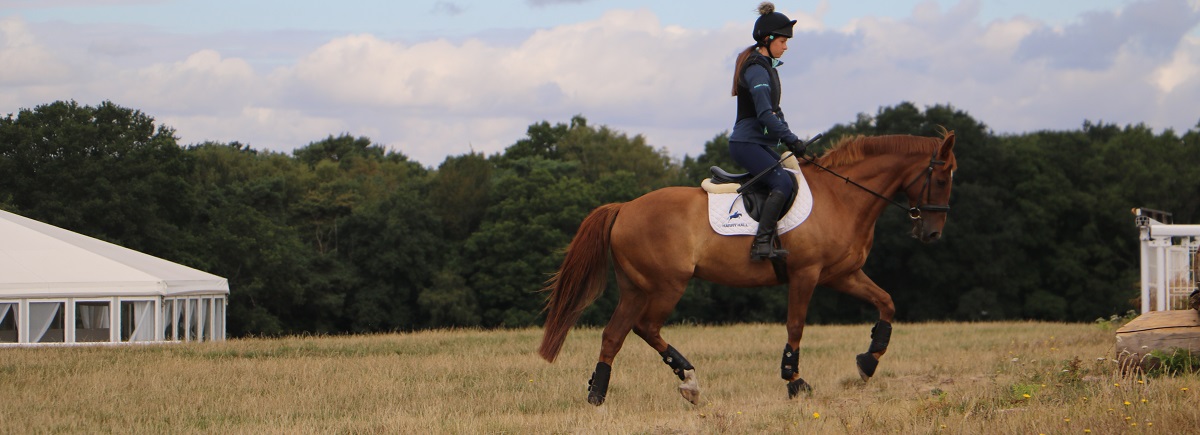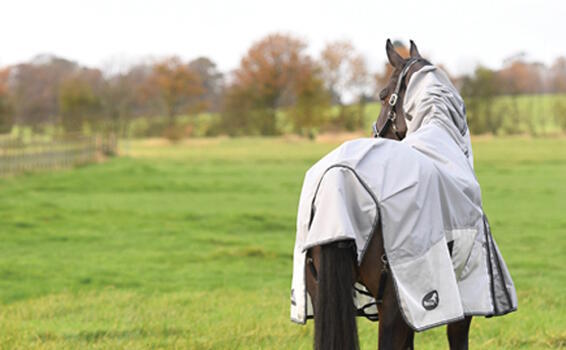
In the winter months, we worry about splodging through the mud, in the summer we worry about the ground being too hard. Makes sense hey? The life of a horse owner is a constant rollercoaster of checking the weather, stamping on the ground and checking the grass coverage, in this blog we look at whether hard ground is bad for horses and explore how you can deal with working your horse on hard ground to avoid injuries and mishaps:
Is hard ground bad for horses?
If you’re worried about cantering your horse on hard ground the best advice we can give is to get to know your horse. Some horses actually perform well on the firmer ground whereas others prefer deep going. If you get to know what sort of ground your horse likes this will help you determine whether you feel comfortable cantering on hard ground.
In terms of hard ground being bad for horses, it's no secret there is an increased risk of concussion type leg injuries (particularly to the tendons, ligaments, joints and bones) when the ground is hard. The force put down by your horse travels back up through the horse’s hooves and legs instead of being absorbed by the ground. If you’re worried about hard ground and the effect this could have on your horse, try to limit or avoid cantering on it where possible, we recommend maintaining a slower-paced gait - walk or trot, so the force going through your horse’s joints isn’t as strong. Now, we don't all have access to an arena or varied terrain to work our horses. So if your schooling field becomes a rock-solid arena in the summer months here's how you can manage your horse's legs.
How can I protect my horse's legs?
The Protechmasta leg wraps can aid recovery by helping to improve the function of the blood vessels, this, in turn, improves circulation and recovery which reduces swelling and the potential for injury. We recommend bobbing the leg wraps on after ridden work on hard ground, thirty minutes of wear will benefit your horse’s leg and if they can be left on overnight even better! This leads us on to what to do if your horse does get an injury after working on hard ground.
Using ice boots for horses to treat an injury
If your horse does sustain an injury, it's often a good idea to use cold therapy to treat an acute injury. It can be used three to four times a day for a maximum of 40 minutes at a time. Ice is best used on acute injuries within the first two days of the injury happening. Catching an injury early and using ice boots can help reduce the severity and thus improve the healing chances of a soft-tissue injury. Read more about what ice boots do for horses.
Brittle hooves in horses and hard ground
A perfect level of moisture for a horse’s hoof is 24%, this allows the internal structures of the hoof to expand and contract naturally. When it’s hot and the ground is firm moisture levels in the hoof can drop to around 14% - at this level the condition of the hoof can deteriorate leading to dry hooves that can become brittle. A sign of this is breakage, especially around the nail and clenches. Again, get to know what is “normal” for your horse and start to notice the signs of dry hooves. Kevin Bacon's horse Hoof Dressing can help prevent splits and cracks without clogging up the pores.
Fly protection can help:
Taking extra precautions during “fly season” will help protect your horse’s hooves. Sounds strange right? But horses often stamp or scrape when bothered by the pesky flies, these sorts of repetitive motions can cause injury over time and if your horse is digging at the ground with dry and brittle hooves they will inevitably split over time. Irritable flies can also make your horse gallop around the field to escape the pesky critters, this can lead to concussion injuries as mentioned above as well as losing shoes due to the brittle hoof not being able to hold on to the nails. So, slop on the fly spray, invest in a good fly rug and fly mask and consider feeding your horse garlic to help keep flies and biting insects away. 
How can you reduce the risk of hard ground?
- Pick where you work your horse. If you’re worried about working your horse on hard ground, try to avoid riding on it day in, day out. Winter is a great time to build up leg stamina, walk and trot on the road for a minimum of six weeks during the winter before you introduce any faster work to prepare your horse’s legs for potential hard ground in the summer
- Biotin and Mastacare solid hoof oil can help maintain healthy hooves all year round
- Invest in the Ice-Masta boots to give your horse's legs the best chance of recovering after a session on hard ground.
- Use fly protection – stock up on fly spray and invest in a good fly rug
- Let your horse’s legs recover – if you need to canter when the ground is firm, don’t do it every day, give your horse a break in between to allow their limbs to recover
